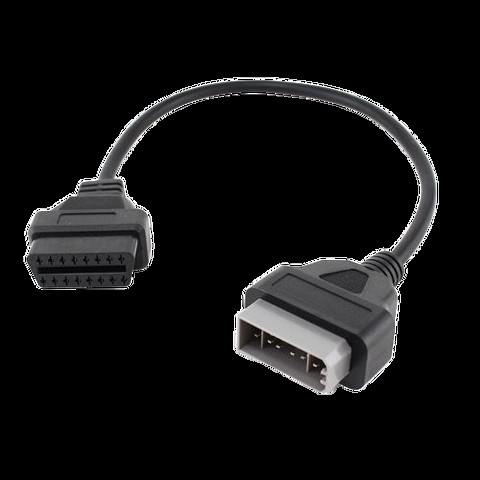OBD (On-board diagnostics) systems are crucial for diagnosing car problems. There are two main types: OBD1 and OBD2. This article addresses a common question: Can OBD2 scanners be used on OBD1 cars? The short answer is no, but let’s explore the details.
Understanding OBD1 and OBD2 Systems
OBD1 systems were prevalent in vehicles manufactured before 2006. However, the transition to OBD2 wasn’t uniform across all manufacturers. Some car models adopted OBD2 as early as 1996, while others continued using OBD1 until the mid-2000s.
OBD2, mandated in the US for 1996 models, offers standardized diagnostic trouble codes (DTCs) and provides more comprehensive data from the vehicle’s systems. This standardization makes diagnostics easier and more consistent across different car makes and models.
Why OBD2 Scanners Won’t Work on OBD1 Cars
OBD1 and OBD2 systems differ significantly in communication protocols, connector types, and data provided.
-
Communication Protocols: OBD2 utilizes a standardized set of protocols (e.g., CAN, ISO 9141-2, J1850) for communication between the scanner and the vehicle’s computer. OBD1 systems, on the other hand, employed various proprietary protocols that varied between manufacturers and even models. An OBD2 scanner cannot understand these proprietary languages.
-
Connector Types: While OBD2 standardized on a 16-pin connector, OBD1 connectors varied greatly. You might encounter 14-pin, 22-pin, or other connector types depending on the car make and model.
Example of a Nissan 14-pin OBD1 connector.
Example of a Toyota 22-pin OBD1 connector often found in the engine bay.
Adapters: A Partial Solution
While a standard OBD2 scanner cannot directly communicate with an OBD1 system, adapters are available for some car models. These adapters bridge the gap between the OBD2 scanner’s 16-pin connector and the vehicle’s OBD1 connector.
Example of a Toyota 22-pin to OBD2 adapter.
Important Note: An adapter only solves the physical connection problem. It does not convert the OBD1 data into the OBD2 format. You still need a scan tool capable of interpreting the specific OBD1 protocol used by your vehicle. Using an OBD2 scanner with an adapter on an incompatible OBD1 car will not work. Even if the car has a 16-pin connector, it might still use an OBD1 protocol.
This is a standard OBD2 16-pin connector. Not all cars with this connector are OBD2 compliant.
Determining Your Car’s OBD System
The most reliable way to determine your car’s OBD system is to consult the vehicle’s owner’s manual or a reputable online resource specific to your car’s make and model. The year of manufacture can provide a clue, but there are exceptions.
Conclusion
Using an OBD2 scanner on an OBD1 car requires more than just an adapter. You need a scan tool specifically designed to handle OBD1 protocols. Always confirm your vehicle’s OBD system before purchasing any diagnostic equipment. If you’re uncertain, consult a professional mechanic or automotive specialist.

